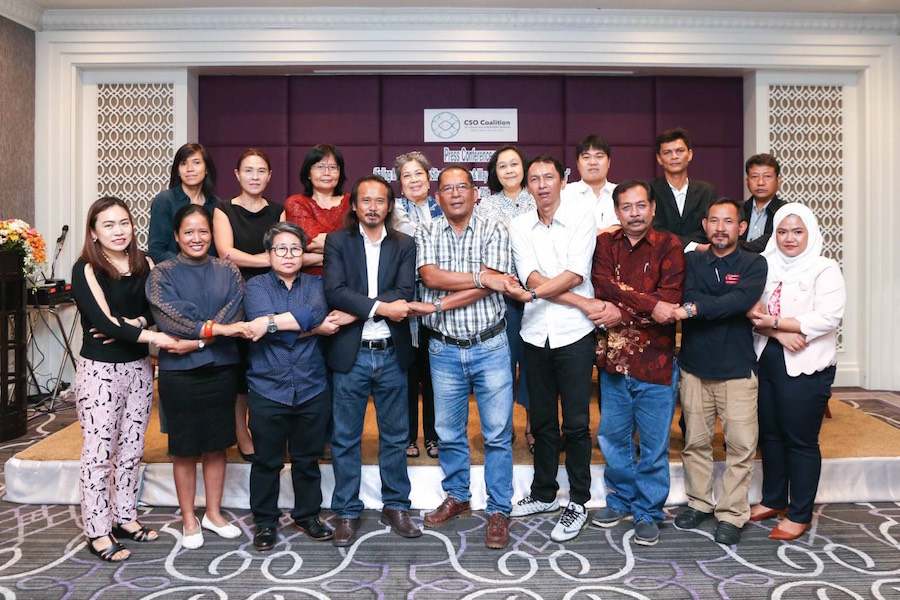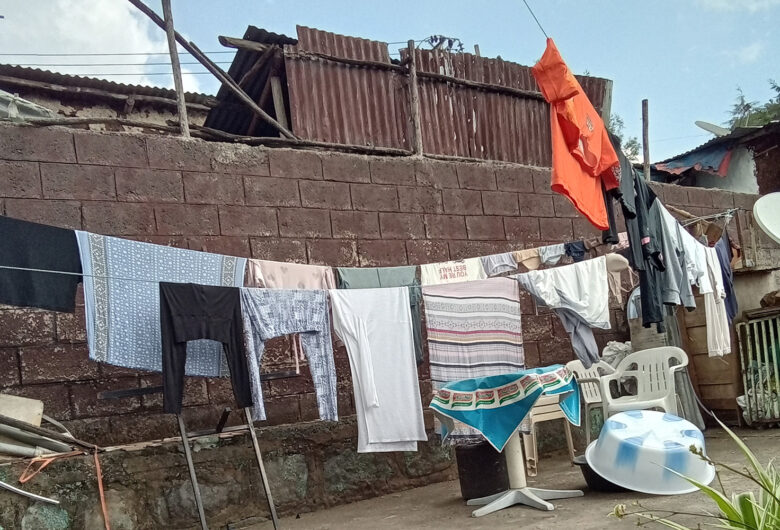In recent years, the Thai fishing industry has come under international scrutiny for its abusive labour practices. Migrant workers have reported physical and verbal abuses and daily discrimination from their employers and local authorities. Civil Society Organizations (CSOs), international buyers and key exporters have continued to invest resources into addressing these allegations. Additionally, the Thai government has swiftly passed legislation and demonstrated a high level of commitment to reform the industry. It is, however, difficult to assert whether these reforms have delivered promised results to eliminate slavery from the fishing industry.
Recently, a group of national CSOs has come together and formed a CSO Coalition for Ethical and Sustainable Seafood – supported by the Freedom Fund and Humanity United – aiming to address human rights and environmental sustainability issues in the Thai fishing industry. This collective platform of frontline NGOs aims to work as industry and government ‘watchdogs,’ as well as provide constructive feedback on ongoing reforms. Currently, the CSO Coalition is made up of ten Thai NGOs, half of which are labour NGOs and the other half are environmental NGOs concerned with the fishing industry.
In May 2018, the CSO Coalition formally launched its first collective survey of basic labour rights among migrants working in the Thai fishing sector. The report, Falling through the Net, reveals both signs of progress and existing gaps in the recent industry reforms. The survey was conducted through intensive collaborations between Freedom Fund partner organisations, including Labor Rights Promotions Network, Migrant Workers’ Rights Network, Stella Maris Seafarers, Human Rights Development Foundation and Foundation for Education and Development in Thailand.
The research was conducted between December 2017 and February 2018, during which the CSO partners surveyed 300 migrant workers employed in the Thai fishing industry in six coastal provinces. Survey questions addressed working conditions, terms of employment and employer practices, with a focus on working hours, occupational health and safety and fishers’ interaction with government officials.
Sign of Progress:
- Migrant worker registration – 62% of survey respondents said to have a passport or a certificate of identity. This compares with only 15% of fishers who reported holding a passport or certificate of identity in research conducted by the ILO in 2017.
Remaining Gaps:
- Contract signing/document retentions – When asked whether they recall signing an employment contract, 43% said ‘Yes’, while 39% said ‘No’ and the remaining 18% said they are unsure. Worryingly, 95% of respondents said that they do not possess a copy of their employment contract. In addition, when asked whether they retained their personal identity document, 62% said ‘No’ and 38% said ‘Yes’. These practices violate existing Thai laws.
- Working hours – One in five fishers said that their working hours exceeded the legal limit. On average, most respondents reported working five extra hours in port on arrival and departure days, highlighting an urgent need for regulators to more closely examine the relationship between hours of work at sea and onshore.
- Health and Safety – While most fishers said they had been trained to use safety equipment such as lifejackets, few said that they had been instructed on the safe operation of fishing gears. In addition, one-third of fishers said that vessel operators failed to provide basic medical and first-aid supplies aboard the boat.
- Rights at Work – About 71% of respondents felt they are inadequately informed about their rights at work. A third said they did not access any information about their labour rights. 33% of respondents said that they access information about their rights through Thailand-based NGOs and only 7% accessed this through social media, in contrast to the recent ILO survey which shows that the most fishers own smartphones and/or have a Facebook account.
- Interaction with government officials – This is perhaps one of the most significant gaps; the majority of fishers said that they had not been interviewed by officials about their job while at sea or onshore inspections. However, when fishers were interviewed, it was evident that government officials use fishers’ colleagues and employers’ representatives as interpreters. Lack of a ‘safe space’ for these interactions has resulted in fishers withholding critical information about their working and living conditions on the boats.
What Needs to Be Done?
As one can see, existing gaps strongly outweigh signs of progress in the current reforms. Despite the dynamic changes and rapid evolution of the industry, the CSO survey suggests several alarming findings.
First, progress is still being impeded by the ineffective enforcement of labour laws. While the government can change the laws swiftly, effective implementations take time and investment in local government’s capacity.
Second, progress calls for a more tangible and impactful collaboration between government, the private sector (both international buyers and seafood exporters) and civil society organizations. These dynamic and adaptive challenges cannot be solved by one single group of actors alone. One needs a shared vision, a realistic action plan and effective feedback mechanisms.
Finally, building trust and accountability systems will be a critical success factor. When governments and companies commit to action, such as adopting international conventions and implementing transformative initiatives, they should follow through on these commitments. Otherwise, this would create unproductive mistrust and result in fixes that fail to improve the lives of vulnerable workers.
Art Prapha is Senior Advisor (Private Sector) at Oxfam America.
Pictured: Members of the CSO Coalition for Ethical and Sustainable Seafood




